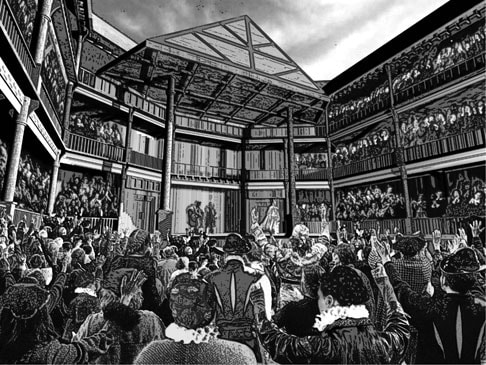|
...wasn't actually about writing. We'll get to that in a bit, though. I throw a lotta flack at teachers. They deserve it. I feel that teachers are the same as journalists or medical staff. Their job is important, which is why I get so irate when they fuck it up. Some schmuck like me shouldn't care more about their position than the person paying their mortgage with it. I was pretty lucky in high school, though. I'm going to say that the ratio of great to suck teachers were 9:1 in their favor, which probably inversely-proportional with the quality of my experience with college professors. (I still had some good ones but for every class that had a positive affect on my life, there were four that were in one ear, out the other at best. Most were soapboxes for the professors' bleeding egos.) This article is about one of the exceptions. Before I graduated high school, my favorite teacher and coach said that no matter what I do, I had to take this professor's Shakespeare class. (I went to the same college he did.) This was something I learned from his Shakespeare class, that didn't just change the way I read but also the way I wrote and go about every social interaction I have. The assignment was to read a passage of one of The Bard's plays and describe what the characters are doing. Now, what that means is not just repeating the words they are saying but treating their words like actions and explaining the intentions behind these words. For an example off the top of my head, if a wife said to her husband that Janice's husband just bought her a nice car, she might be implying that it was time they look into a new vehicle. If someone is at a party and says, “It's getting late,” they aren't just making a remark about the time; they're also implying that they are ready to leave. If you're a writer, obviously you read. I'm not going to belittle you by recommending reading a book. Duh. A good way to practice this that doesn't involve reading, in my opinion, is by watching movies and analyzing each decision that the director makes as well as the characters on-screen. Why did (s)he cut here? Why are they playing this song at this moment? What are they conveying to the audience in what we are being shown on-screen? What made this so revolutionary for me was that it laid every interaction out like a game of chess. You're no longer wholly-preoccupied by the surface value; you begin looking past words to see intent. In reading, this gives you a deeper understanding of the characters. You can also evaluate the structure by asking yourself what the author is doing rather than just what the characters are saying. In real life, it can make you more privy to what others are up to. It can be a fast-track to sociopathy but it can also be a safeguard against someone trying to manipulate you. Most importantly, for this article, at least, it allows you to coordinate character interactions and provide readers a richer experience. Consider things like body language, blocking of which characters are where, the dialogue itself. I've begun seeing my own writing like stage notes to a play readers perform in their minds. This technique has allowed me to essentially function as an actor playing every character while also assuming the role of director. So, next time you're writing or editing, ask yourself, “What is this character doing? How am I as the author expressing this?” It's simple but you only need one tree trunk to bear a dozen fruits. (Honestly, that's the best closer I've got. I can hardly keep my eyes open.)
0 Comments
|
CategoriesArchives
August 2023
|



 RSS Feed
RSS Feed